How to choose the right mattress size for you, your sleeping position, and your bedroom
It turns out that mattress size really does matter when you’re buying a new one
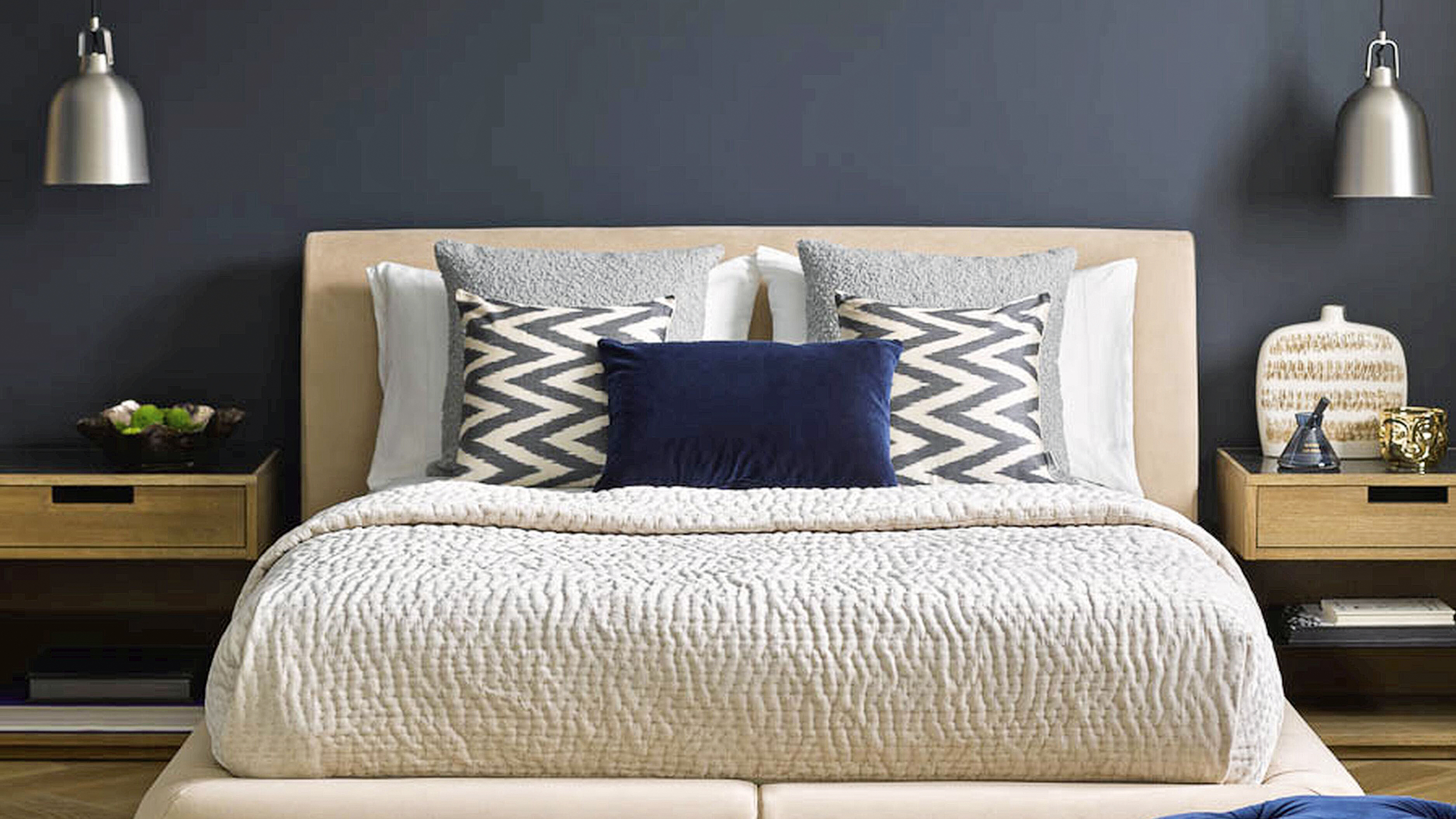

Amy Lockwood
If you’re in the market to buy a new mattress, size is something you should definitely consider. In fact, choosing the right mattress size can be key in getting a good night's sleep.
At Ideal Home, we’ve tested some of the best mattresses in the business, and whilst we understand that most people choose a mattress based on its feel, price tag, and it's ability to help you sleep better, it’s also important to realise that the size of a mattress is also an important factor.
But how do you choose the correct mattress size for your bedroom and sleep needs? Well, we’ve consulted with sleep experts to create a guide to the many different mattress sizes availble in the UK, and how you can choose the right one for you.
How to choose the right mattress size
‘Choosing the right mattress size ensures a comfortable and restful sleep experience tailored to your preferences and lifestyle,’ explains Rachel Marshall, Brand Manager at Bensons for Beds.
In the UK, there are eight standard mattress sizes. Below, you’ll find a table with the exact measurements, alongside a more detailed description of these sizes.
| Header Cell - Column 0 | Size (cm) | Size (feet) |
|---|---|---|
| Cot mattress | 60 x 120 | 23" x 47" |
| Toddler mattress | 70 x 140 | 2'3" x 4'6" |
| Small single mattress | 75 x 190 | 2'6" x 6'3" |
| Single mattress | 90 x 190 | 3'0" x 6'3" |
| Small double mattress | 120 x 190 | 4'0" x 6'3" |
| Double mattress | 135 x 190 | 4'6" x 6'3" |
| King mattress | 150 x 200 | 5'0" x 6'6" |
| Super king mattress | 180 x 200 | 6'0" x 6'6" |
1. What size is a cot mattress?
Typically, a UK standard cot mattress is 60cm wide and 120cm long. This mattress size is ideal for babies from birth until they are around three years old and is the perfect finishing touch to your nursery idea.
These cot mattresses are normally adapted to protect and encourage the development of a baby, too. They are usually around 10cm deep (which is thinner than the industry standard of 15 - 30cm for larger mattress sizes). This helps to keep a baby’s spine aligned during this all-important growth stage.
Sign up to our newsletter for style inspiration, real homes, project and garden advice and shopping know-how
2. What size is a toddler mattress?
A step up from a cot mattress, a toddler mattress is slightly larger at 70cm wide and 140cm long. These mattresses are often a good in-between option for parents who want to slowly transition their toddlers from a cot to a single mattress.
Most experts also agree that a toddler mattress can be used for young children aged between 1 and 4 years old. Of course, you’ll also need a smaller toddler bed frame if you choose a toddler mattress.
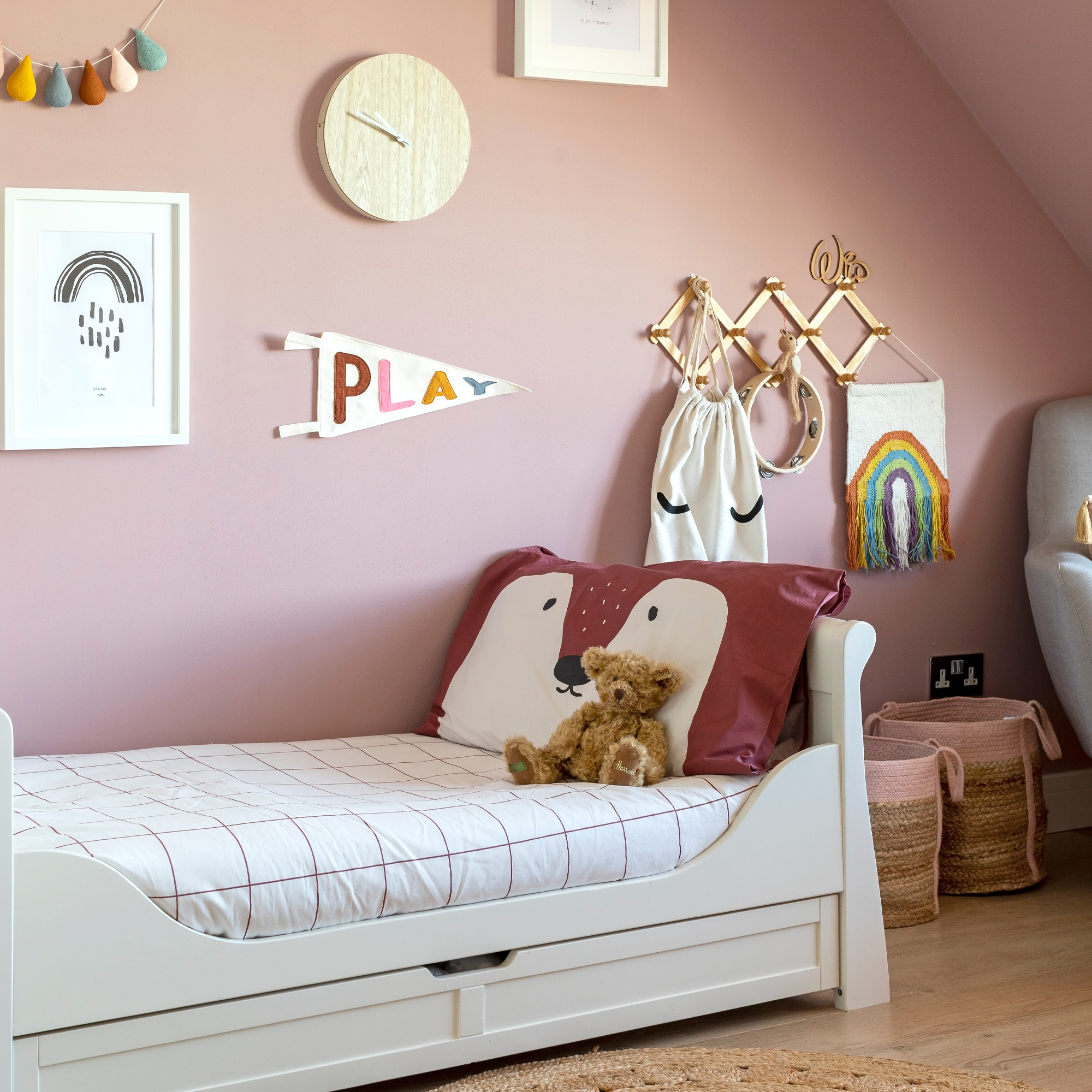
3. What size is a small single mattress?
Small single mattresses measure 75cm wide and 190cm long, and while they’re not as popular as full-size single mattresses, they are often the best option for children’s character beds that are narrower than usual.
If you prefer not to invest in one of the best sofa beds, you may also find that a small single is the best option for a small guest room if you're looking for an option that will save space.
4. What size is a single mattress?
The UK standard size for a single mattress is 90cm wide and 190cm long. Although they are smaller than a double, the fact that they are still over 6ft long makes them a great investment for parents looking for a new mattress for their children. After all, it’ll last throughout all of their growth spurts.
Musi Chayla, VP of Retail at Sleep.8 explains, ‘A single mattress is ideal for individuals who sleep alone or have limited space in their bedroom. It offers ample comfort and support for one person, making it suitable for children's rooms, guest bedrooms, or compact living spaces'.
If you prefer twin beds to a double mattress, then two single mattresses are also an alternative option for a shared master bedroom.
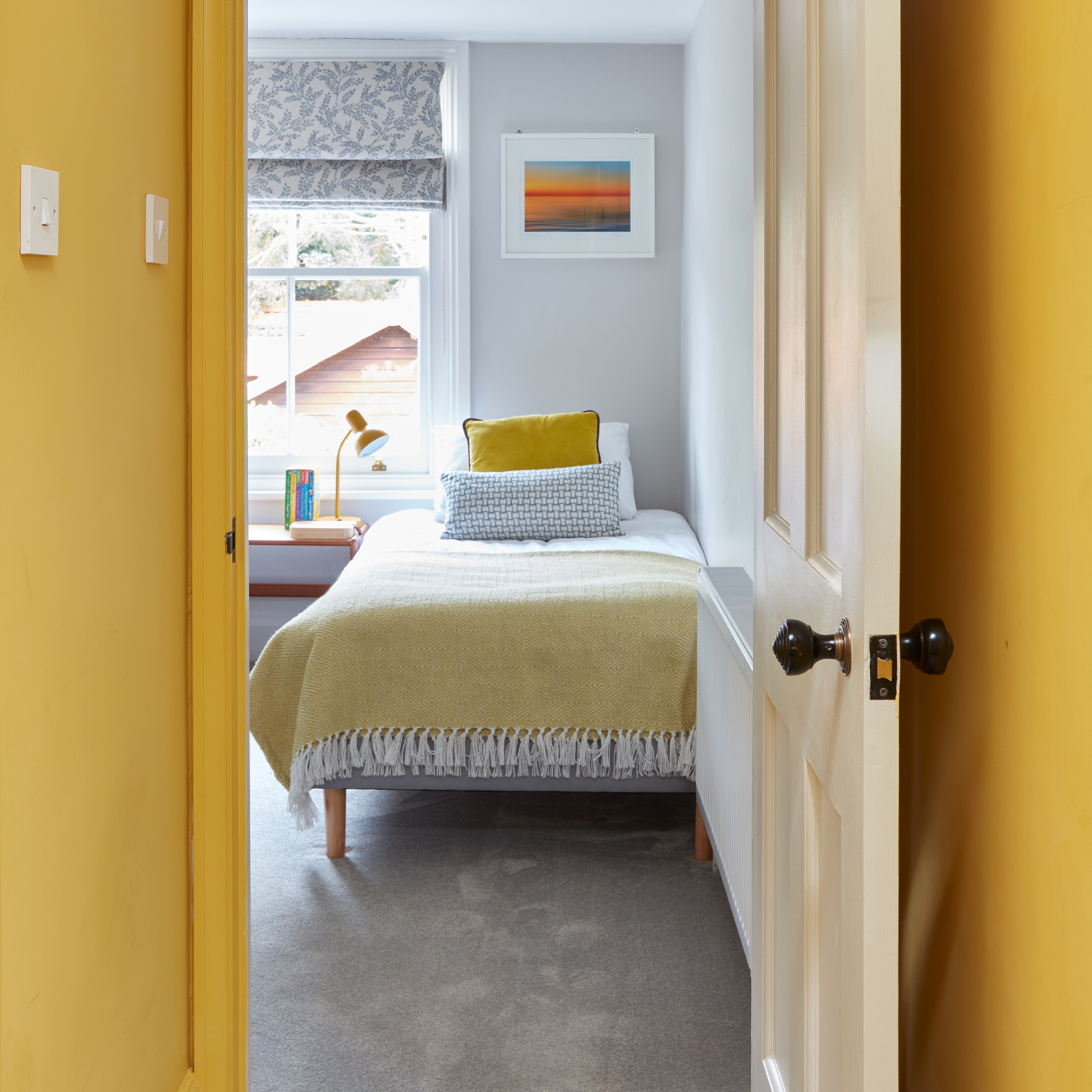
5. What size is a small double mattress?
Often called queen size, a small double mattress is 120cm wide and 190cm long. It’s 15cm narrower than a traditional double, which makes it perfect for those with a small bedroom or those needing a new mattress for a guest bedroom.
Rebecca Swain, a mattress expert at Winstons Beds, says, ‘If you have a tight room but there are two of you, then a small double may be just what you need. It might be a tight squeeze, but it can still be comfortable to sleep on’.
A small double can also be a good option for a solo sleeper who wants a little more space to stretch out.
However, if there are two of you sharing a bed, and you want to avoid arguments and overheating, we'd always recommend opting for a larger size mattress if you have the space.
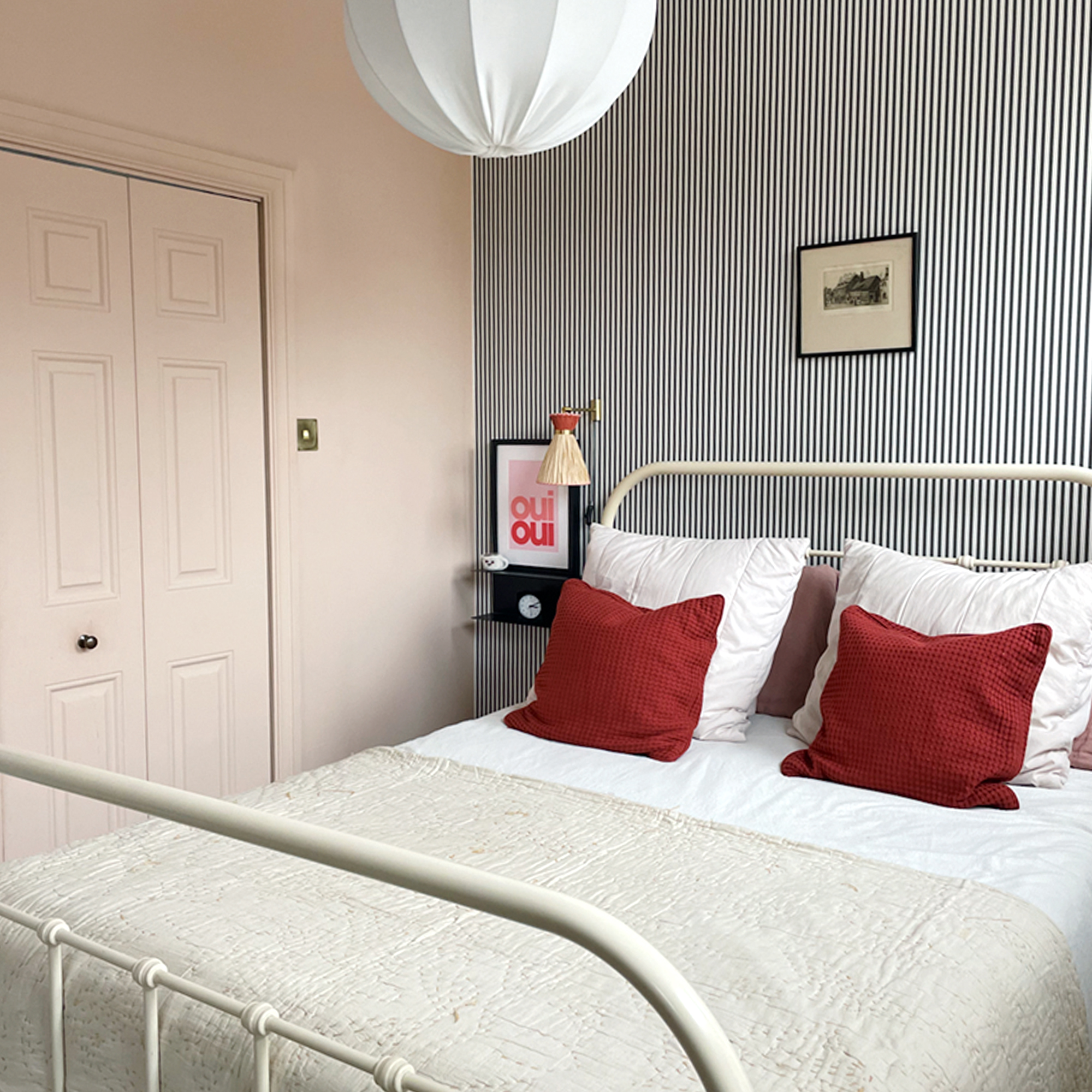
6. What size is a double mattress?
The standard UK size for a double mattress is 135cm wide and 190cm long. It’s perhaps the most common choice for couples, as it’s not too large and will easily fit into smaller bedrooms.
A double mattress is also a popular choice for solo sleepers who have the space to accomodate one.
However, if you share a bed and you love to spread out, or you're taller than average, a double mattress may still feel too small. If one partner tends to be restless at night then a double mattress can also mean there's more chance of sleep disturbance as your bodies will be laid quite close together so movement will be more noticeable.
Again, if you have the space to accomodate one – and the budget for the higher price tag – we'd always advise sizing up so that you and your partner have more space to stretch out and get a better night's sleep.
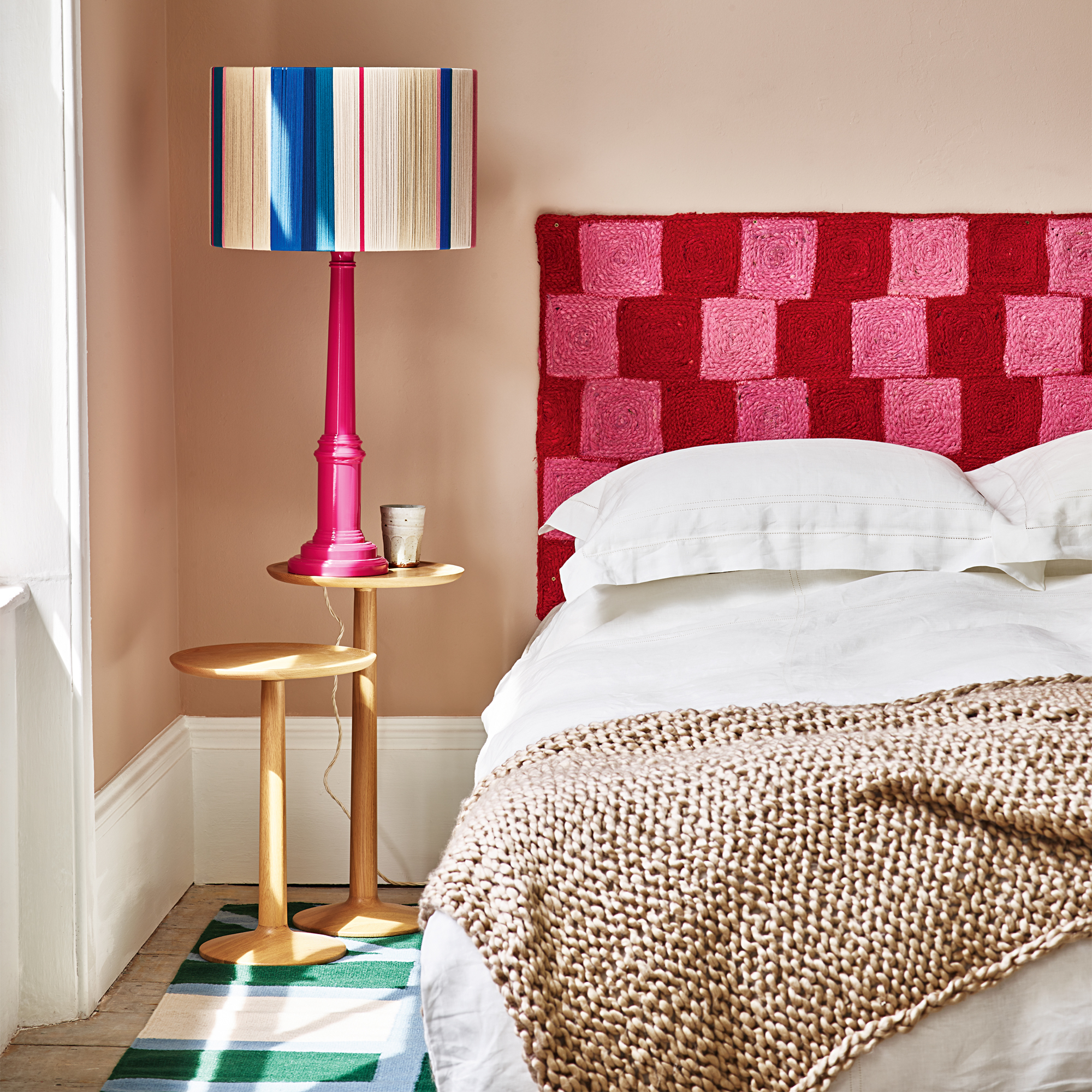
7. What size is a king mattress?
Perfect for taller individuals, a king-size mattress is 150cm wide and 200cm long – meaning it’s both wider and longer than a double mattress. This makes a king-size mattress a great option for those who prefer to have a bit more legroom.
In fact, king-size is the best-selling size for luxury bedding brand, Feather & Black. Laura Burnett, the interiors expert for the brand, says, ‘the beauty of a king-size bed is that it adds an air of hotel-style luxury, whilst offering additional space to sleep, move and rest, all without dominating the average size bedroom. We find that customers enjoy the feeling of a slightly larger bed, without compromising on space, making it a popular choice'.
If you're a couple – and you have the space and budget – we'd always recommend investing in a king-size mattress if you can.
You'll just need to bear in mind access dimensions, as the larger the mattress the heavier and trickier it can be to get up the stairs. In this case it's well worth opting for a mattress that comes with 'white glove delivery' which means it will be delivered to the room of your choice for you. And, if you have awkward access, look out for zip and link mattresses. These come in two parts that zip together once on the bed, making manoeuvring and lifting the mattress far easier.
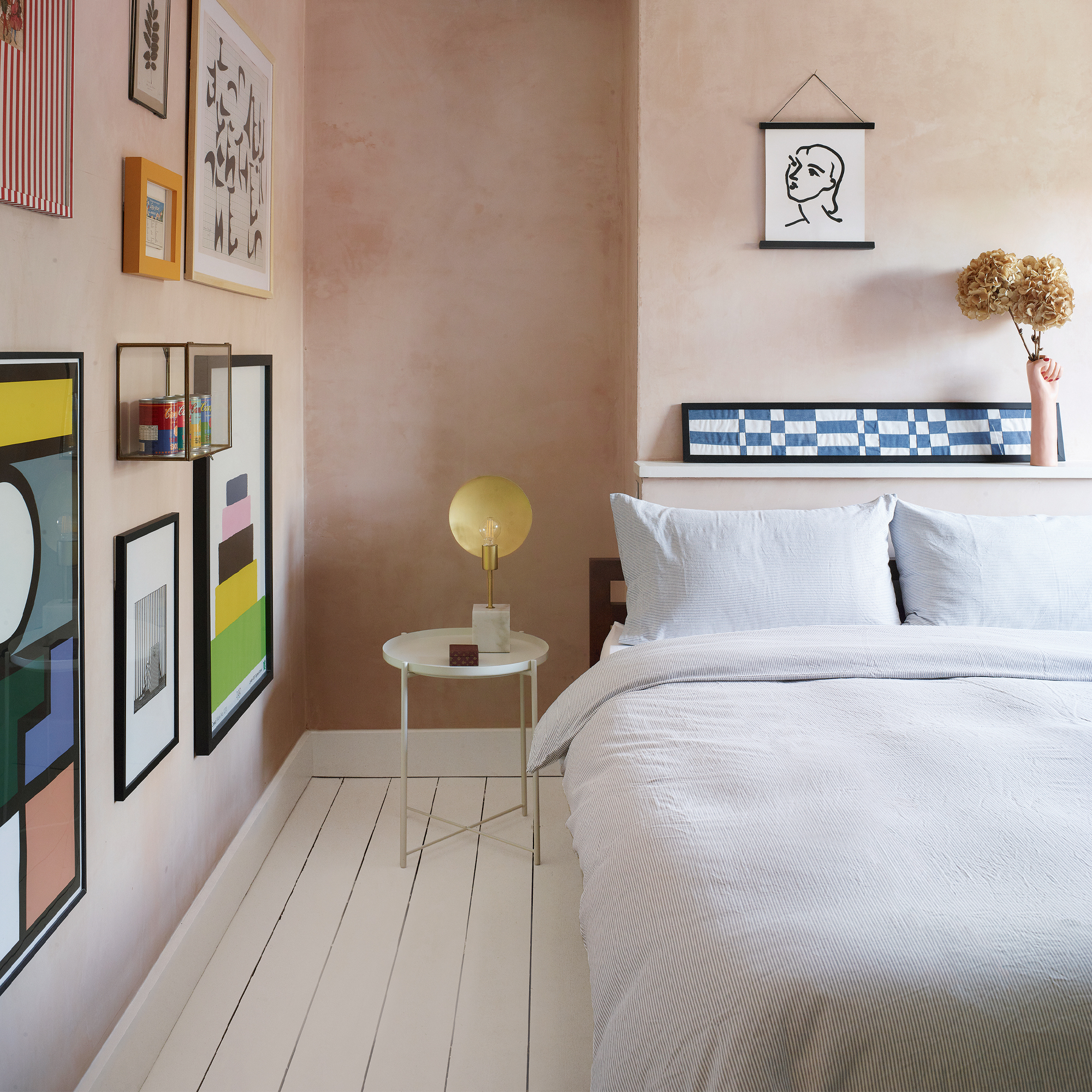
8. What size is a super king mattress?
A super king mattress is the largest of them all, coming in at 180cm wide and 200cm long. But why would anyone want such a large mattress? Well, a super king mattress could be perfect for parents who regularly have children sleeping in their bed, too, and for pet owners who like to cuddle up next to their dog or cat at night.
Rebecca from Winston's Beds also says that a super king mattress can benefit those who are sweaty sleepers. As she explains, ‘if you’re sleeping next to a partner, you won’t be impacted by their body heat which will help make you feel cool throughout the night. They’re the optimal bed for those seeking a luxurious night’s sleep where you have plenty of personal space'.
Of course, this largest of mattresses also comes with the largest price tag, so you will have to weigh up how much a good night's sleep is worth to you.
Tips for choosing the right mattress size
It’s all well and good knowing the standard UK mattress sizes, but with so many size options out there, how do you actually choose which mattress size to buy? Below are a few tips to ensure you buy the right one for you, your sleeping position, and your home.
Measure yourself: If you’re not sure where to start, measuring yourself is a good jumping-off point. Experts agree that a mattress should be at least 15cm longer than the tallest person who will be sleeping on it. You also need to take into account whether the person sleeping on the mattress will be sleeping solo or next to someone else.
Adam Hirst, the head of digital at mattress manufacturer Woolroom, says, ‘Take note of the width and length of the mattress. For example, if two people are sharing the bed, sleeping on a double is like sleeping on a cot mattress. Consider upgrading to a king-size which offers a little more width and also 10cm extra length – perfect for those sleepers who are perhaps a little taller!’
Measure your room: You may dream of having a king-size mattress, but there’s no point spending your hard-earned money on a mattress that ultimately won’t fit in your room. Because of this, it’s always a good idea to measure your room before settling on your mattress size.
Rachel of Bensons for Beds says, ‘Ensure the mattress size fits comfortably in your bedroom without overcrowding the space. Leave room for other furniture and easy movement around the bed.’ During this stage, you should also consider whether you can fit a new mattress up the stairs or around corners. If not, you might want to buy a mattress-in-a-box instead.
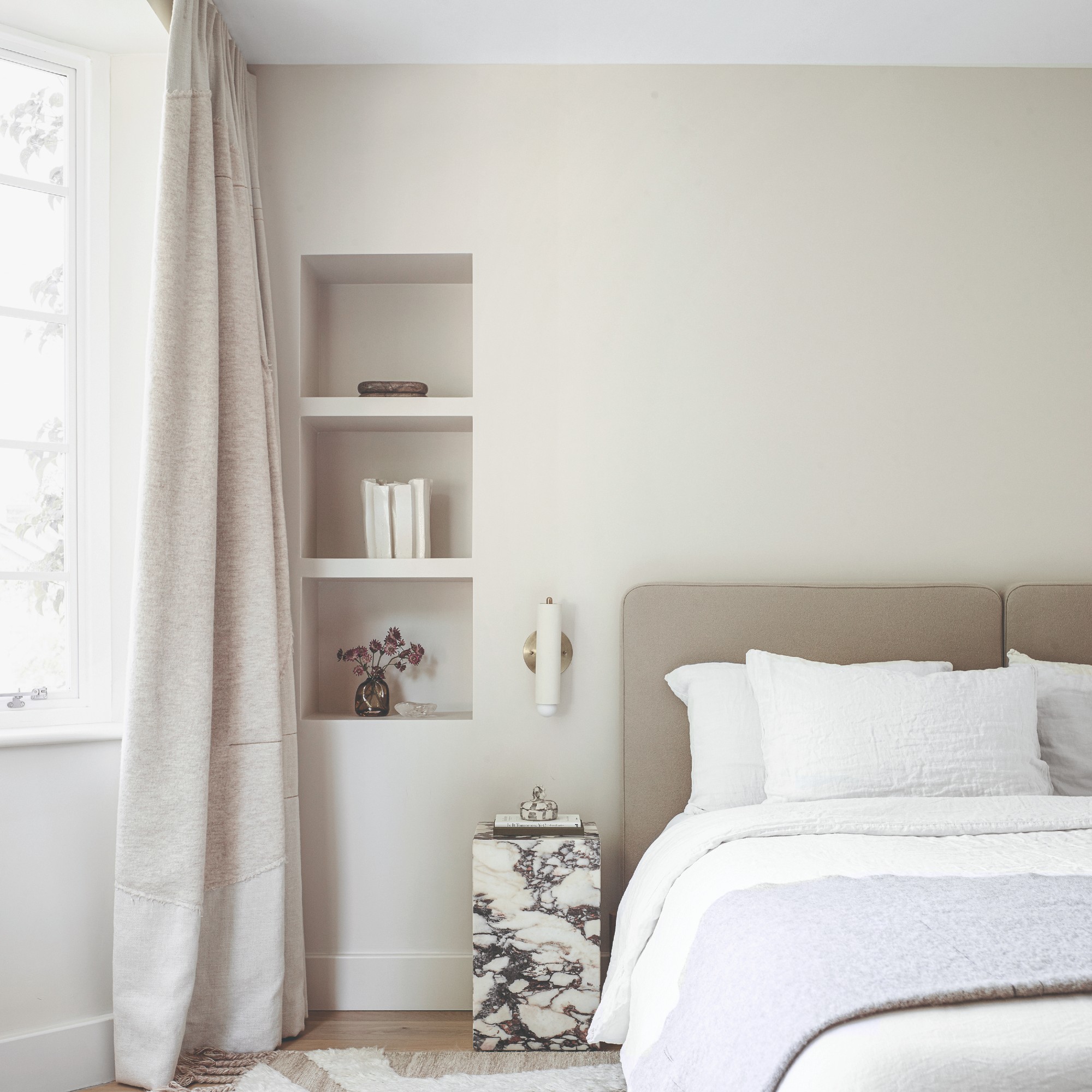
Consider your sleeping position: Are you a side sleeper? A front sleeper? A back sleeper? Or are you a twister-and-turner? This is something that can ultimately affect the mattress size you choose. For example, if you tend to stretch out and lie flat, you’ll need a mattress that is long enough.
If you normally tuck in your legs and bundle yourself into a ball, you won’t need one as long and could potentially buy something smaller. Musi says, ‘A mattress should adequately accommodate the sleeper's body size and provide sufficient support to promote proper spinal alignment and alleviate pressure points.’
Consider your bed frame: There are so many amazing places to buy a bed, but you still need to consider your bed frame when buying a new mattress.
If you’re not buying a new bed frame, it’s unlikely that you’ll be able to change mattress size. If you’re buying a new bed frame, however, you just need to make sure that you double-check the dimensions and that they’re compatible.
Compare UK vs European sizing: Although you may expect UK-based brands to sell UK sizes, that isn’t always the case. Stephany Aubrey, Brand Specialist at Zinus, explains, ‘In Europe, you’ll find a much greater variety of bed sizes and styles than in the UK, which means there’s more chance of getting a size you don’t expect if you don’t check first. While you might be able to accommodate the different sizes, because you need a mattress that fits the bed frame, these changes can stop you from finding the perfect fit.’
She also adds, ‘Common European bed sizes include: EU Single (same width but longer than a UK single bed), EU Double (wider than a double bed in the UK, but the same length), EU Queen (wider and longer than a UK queen bed. It sits between king and super king beds in size), EU King (wider than a king bed in the UK, but the same length), and an Emperor or EU Grand King (same size as the super king bed in the UK)’.
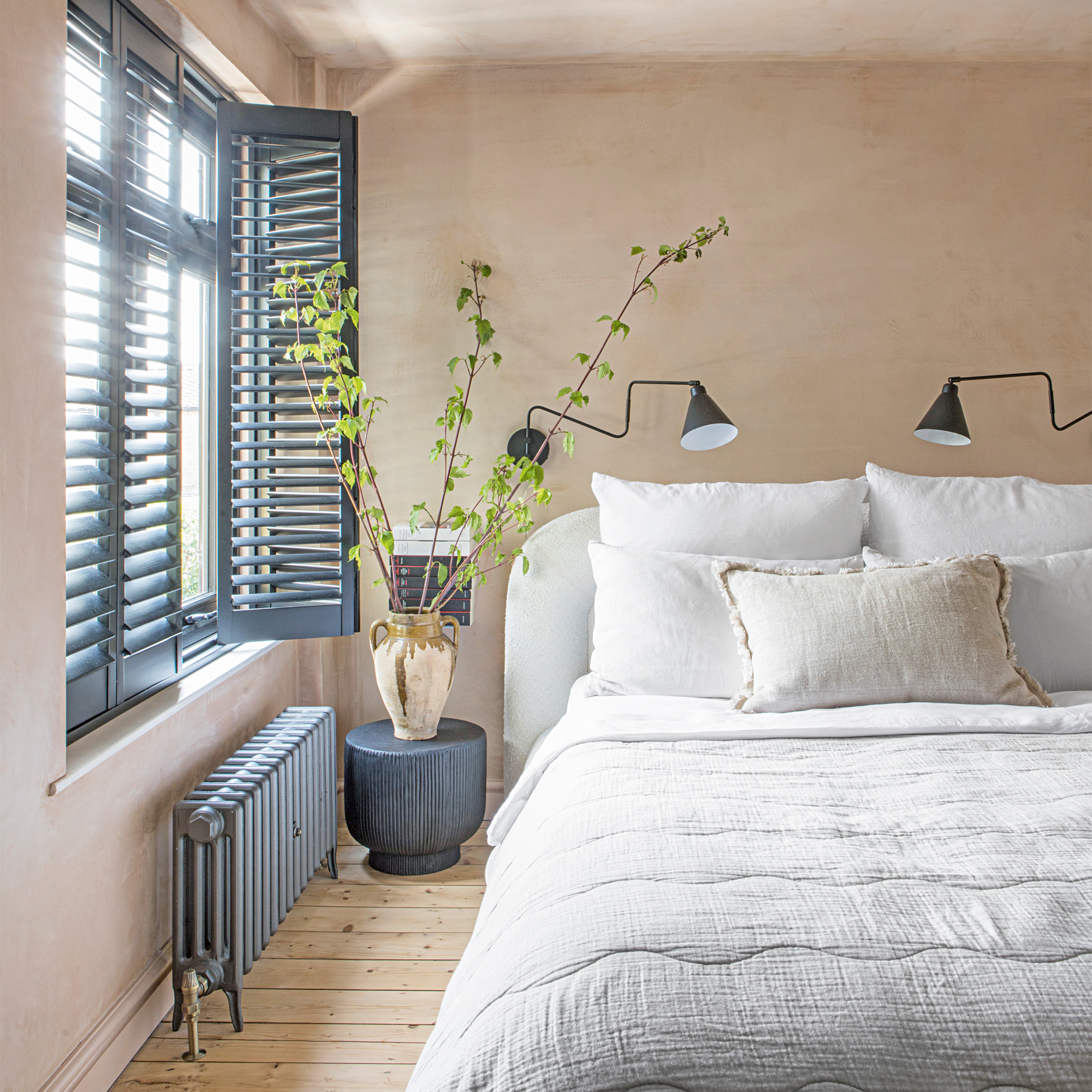
FAQs
How do I choose the right size mattress?
To choose the right size mattress, you first need to get your measuring tape out. Then, you can measure yourself (or the tallest person who will be sleeping on the mattress) and choose a mattress size based on those measurements. When you’ve done that, you should measure your bedroom to double-check you have enough space to add this new mattress size into the mix.
However, you also need to consider how many people will be sleeping in the bed and your personal sleeping preferences. If you sleep with a partner but love to spread out, you may need to go for a bigger mattress that offers more room.
How do I work out my mattress size?
When you’ve measured yourself and your room, you should then do your research and look into the many UK standard-size mattresses out there. Typically, most people opt for a double mattress, but it’s a good idea to take a deeper dive into the many different size options out there, whether you’re buying a mattress for children or working with a small space.
Should your mattress be the same size as your bed frame?
Ideally, your mattress should be slightly smaller than your bed frame. This allows the bed frame to quite literally ‘frame’ the mattress and will make it feel more secure as you move around in the night.
So,all in all, we hope that you’ll agree with us when we say that choosing the best mattress size for you and your room is a definite must.

Lauren Bradbury has been the Content Editor for the House Manual section since January 2025 but worked with the team as a freelancer for a year and a half before that. She graduated with a Bachelor’s degree in English and Creative Writing from the University of Chichester in 2016. Then, she dipped her toe into the world of content writing, primarily focusing on home content. After years of agency work, she decided to take the plunge and become a full-time freelancer for online publications, including Real Homes and Ideal Home, before taking on this permanent role. Now, she spends her days searching for the best decluttering and cleaning hacks and creating handy how-to guides for homeowners and renters alike, as well as testing vacuums as part of her role as the Ideal Home Certified Expert in Training on Vacuums, having spent over 110 hours testing different vacuum models to date!
- Amy LockwoodSleep Editor